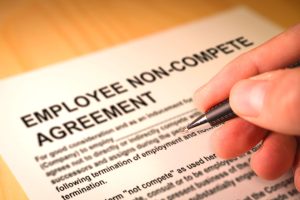The death of a loved one can feel like you’re being torn into two – with waves of intense, very difficult emotions washing over you at any moment. In the immediate aftermath of such a loss, people need a moment to breathe, be surrounded by others they love, and start the long process of healing. That’s where California employee bereavement rights kick in. 
As our Los Angeles employment lawyers can explain, California law guarantees most employees up to 5 days of bereavement leave from work for the death of a qualifying family member (spouse, child, parent, sibling, grandparent, grandchild, domestic partner, or parent-in-law). Employers are allowed to grant it for the loss of someone outside these categories with whom you were close, but they aren’t required to.
The law allows for five days for the death of each qualifying family member. So if you suddenly lose three of your close relatives – even if it happened all at once – you would be entitled to 15 days, rather than just 5. You have three months to use your bereavement leave, but it doesn’t have to be taken consecutively. That is, you could take a day or two immediately after, and the rest of the time to attend calling hours, the funeral, etc.
Bereavement leave can be paid or unpaid; It will be up to the employer’s policy. If the company has an existing bereavement policy that offers fewer than 5 days of paid leave, the employee can receive pay for the number of days in the existing policy, but the rest might not be paid. If there leave isn’t paid, employees can use accrued paid leave to cover unpaid days.
Proof of death can be required within 30 days. Acceptable forms include a death certificate, obituary, or some other written proof of your loved one’s death, burial, or memorial services. You’re entitled to expect confidentiality regarding these requests. Further, taking bereavement leave won’t adversely impact other types of protected work leave.
Similar to the California Family Rights Act (CFRA), it is against the law for an employer to refuse to hire, discharge, demote, fine, suspend, expel, or discriminate against an employee exercising their right to bereavement leave. They also can’t retaliate against an employee providing information or testimony about another person’s bereavement leave in any inquiry related to the employer’s possible violations of the law. Continue Reading ›
 Orange County Employment Lawyers Blog
Orange County Employment Lawyers Blog










